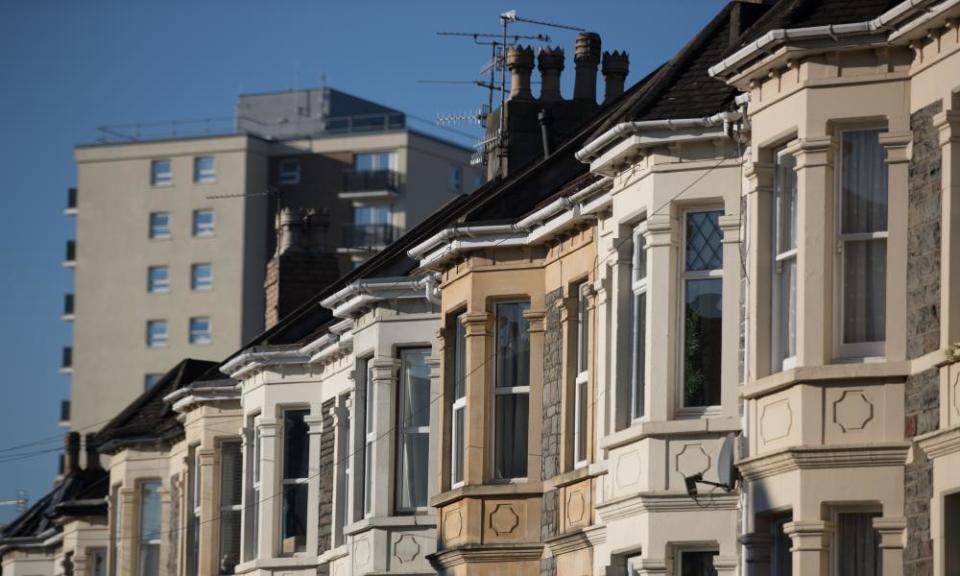UK house prices fall again in April as buyers feel Brexit squeeze

UK house prices fell for a second month in a row in April in a sign that the squeeze on family incomes is starting to weigh on the property market.
The average price of a home fell by 0.4% over the month to £207,699, following a 0.3% drop in March, according to Nationwide. It was the first time that prices fell in two consecutive months in nearly five years and drove down the annual rate of house price growth to 2.6%, the weakest since June 2013.
Robert Gardner, Nationwide’s chief economist, said the slowdown could reflect the broader backdrop for consumer finances, which are coming under increasing pressure from a combination of rising inflation and weak wage growth.
“While monthly figures can be volatile, the recent softening in price growth may be a further indication that households are starting to react to the emerging squeeze on real incomes or to affordability pressures in key parts of the country,” Gardner said.
He said the outlook for the property market over the coming months was particularly difficult to predict because of the upcoming general election and uncertainty surrounding the outcome of Brexit negotiations.
“The economic outlook is unusually uncertain, and housing market trends will depend crucially on developments in the wider economy,” he said.
Nationwide said housing affordability was a key issue for potential homebuyers, with a typical house price currently at 6.1 times average earnings, well above the long run average of 4.3 times earnings. The lender expects house price growth to more than halve in 2017 to about 2%, from 4.5% in 2016.
Consumers have been the main driver of UK economic growth since the financial crisis but there are mounting signs that appetite for spending is beginning to wane.
Retail sales are falling, and households have been dipping into their savings to maintain spending in the face of rising prices in the shops. Inflation is currently at 2.3% and expected to rise to 3% in the coming months as the weak pound since the Brexit vote feeds through to the cost of living.
Howard Archer, the chief UK economist at IHS Markit, said that against this backdrop house prices were likely to come under increasing pressure.
“We suspect markedly weakening consumer fundamentals, likely mounting caution over making major spending decisions, and elevated house price to earnings ratios will weigh down further on housing market activity and house prices over the coming months,” he said.
He added, however, that a housing crash is unlikely because a shortage of homes coming on to the market will limit the extent to which prices fall.

 Yahoo Finance
Yahoo Finance 